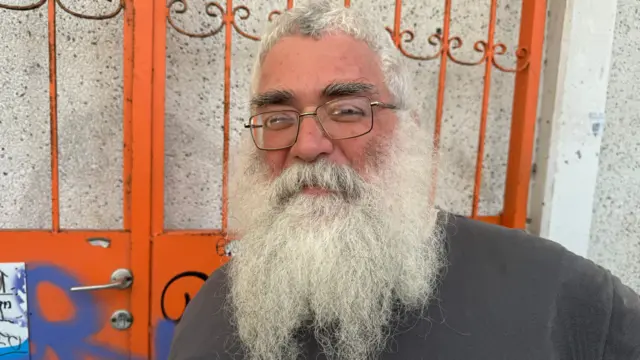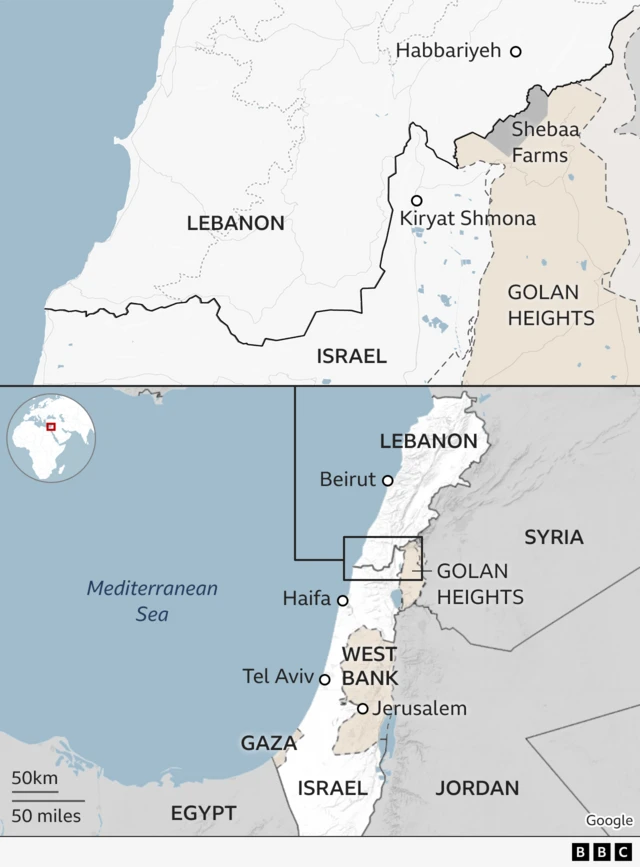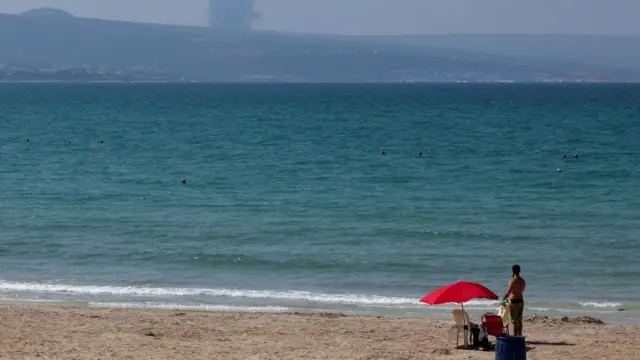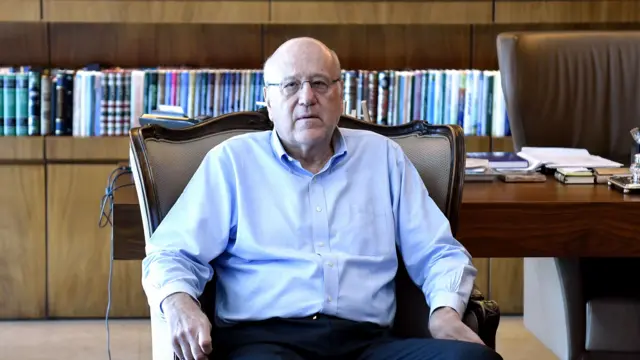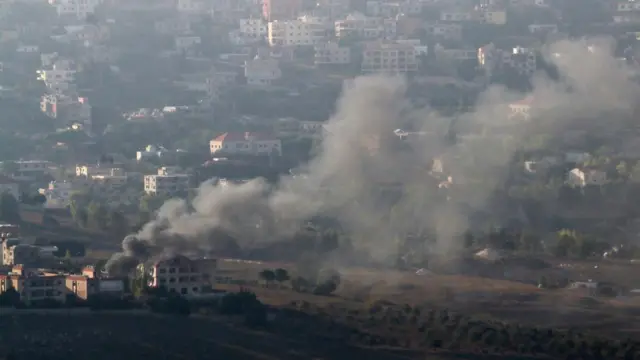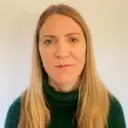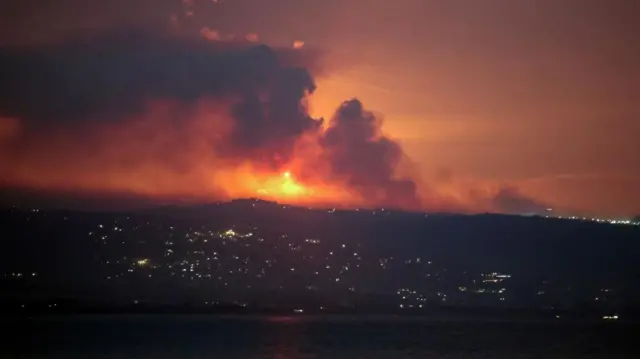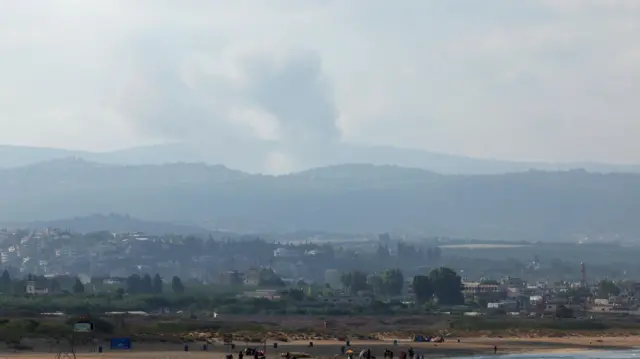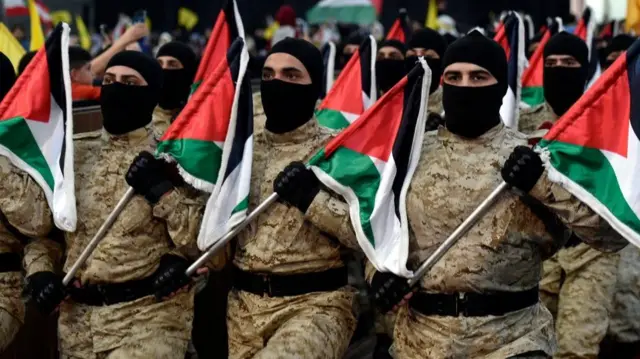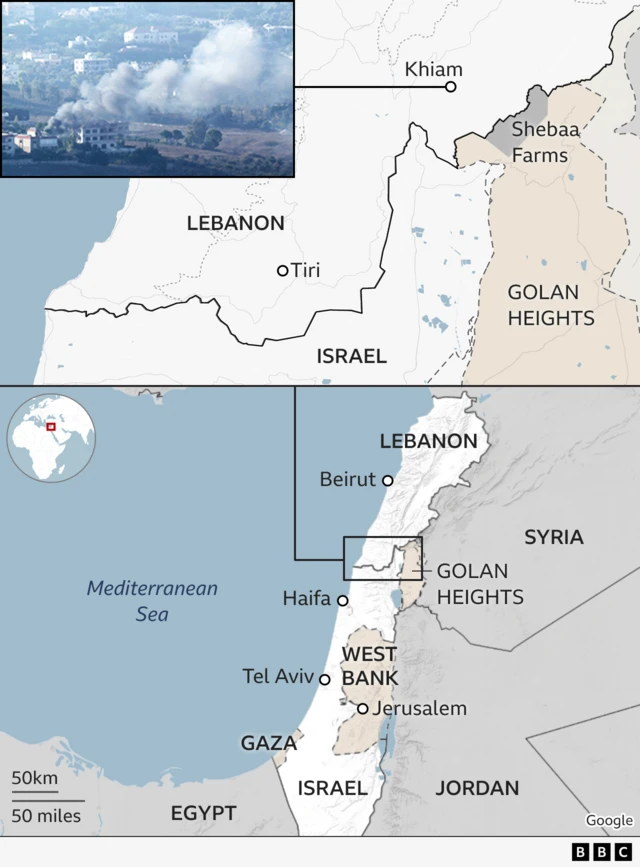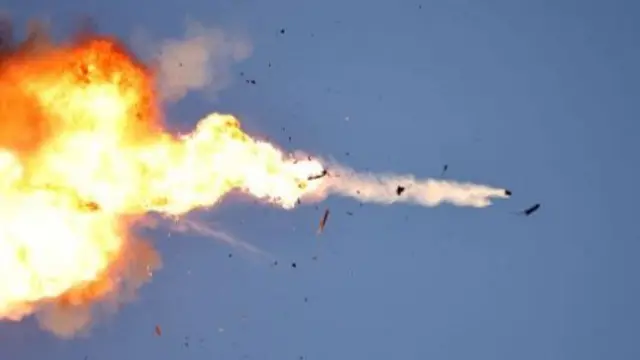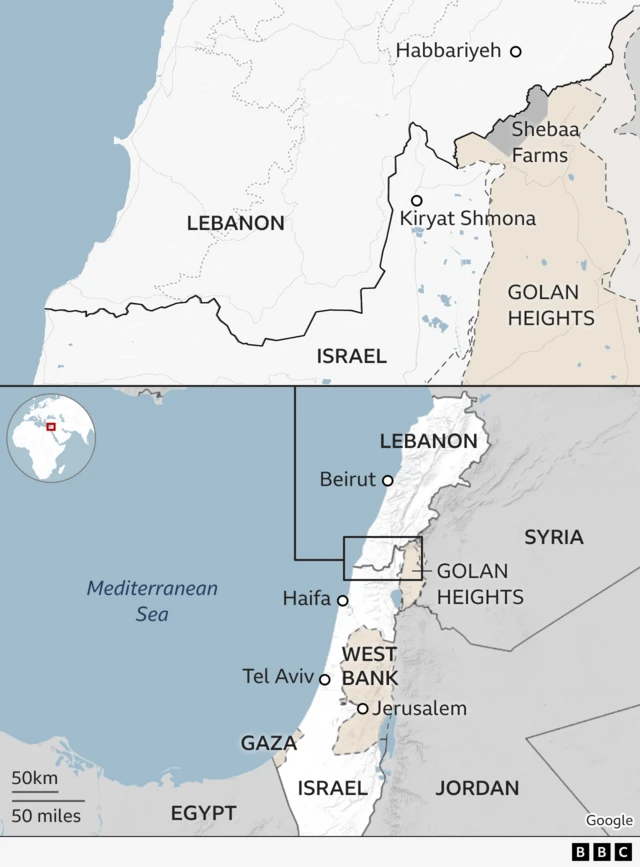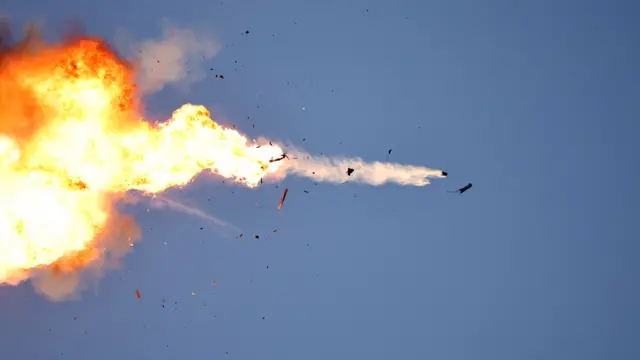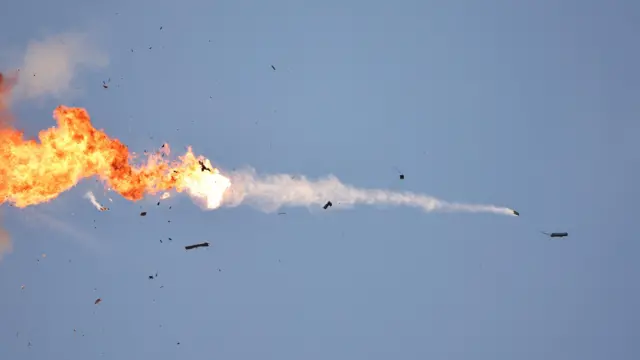Hezbollah announces deaths of two fighters in southern Lebanonpublished at 13:21 BST 25 August 2024
Hezbollah’s media office has announced the deaths of two of the group’s fighters.
Posts on Telegram identify them as Khader Moussa Sweid and Hamza Mohammed Zalghout, whom it says were both from the southern village of Haris.
It adds that they had been “martyred on the road to Jerusalem" - a phrase it has been using to refer to fighters killed by Israeli fire - and provided no further details.
Earlier, Lebanon’s ministry of public health reported that an Israeli strike had killed two people in the village of Tiri. It is not clear if they were the Hezbollah fighters, but Tiri is only 4 km (2.5 miles) south of Haris.
The ministry also said one person had been killed in a drone strike on a car in Khiam. The Amal movement, an ally of Hezbollah, announced the death of one of its fighters from that village.
